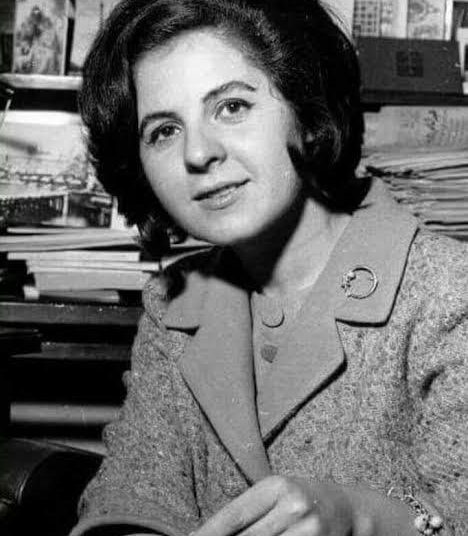Almost five decades after her death in an Israeli airstrike, Egyptian TV personality Salwa Hegazy is well remembered for her professionalism, charisma and simple beauty.
The 48th anniversary of her departure was commemorated last week.
A native of the coastal city of Port Said, Hegazy started her media career on the Riyadh Radio.
In the early 1960s, she moved to work as a presenter on the Egyptian state television that wielded a major influence in Egypt and beyond in the Arab world with its well-crafted shows and star-studded dramas.
She belonged to a generation who highly appreciated the role of the media, including the nascent television, in the Arab countries, some of which had just gained independence from colonial powers, while others were still struggling for liberation.
At the time, the Egyptian television was an influential tool in supporting the ambitious development projects undertaken by the government of then president Gamal Abdul Nasser.
During her illustrious TV career of about 13 years, Hegazy presented a number of popular programmes such as “A Recorded Tape”, “Reportage”, “Art and Life” and “The Sparrows”. The latter was a show for children that earned Hegazy the fond nickname of Mama Salwa. She also presented news bulletins in French.
Her credentials include a rare TV interview she conducted in November 1967 with Egyptian singing legend Umm Kolthum during a world tour. The proceeds of these concerts were channelled into efforts to rebuild the damage that resulted from a military defeat by Israel months earlier. Hegazy also interviewed great Arab singers Fairouz and Nagat.
Her success formula, according to veteran journalist Ezzat el-Sadani was: “If you want to go up the ladder and be prominent in your work, you have first to change, present something new to the people and add something unprecedented to life. Be different from others.”
A graduate of the French-language Lycee School, Hegazy was a connoisseur of literature, mainly poetry. In her short life, she published four anthologies of poetry, including “Shades and Lights” in French that had an introduction penned by the leading Egyptian poet-lyricist Ahmed Ramy.
Hegazy’s life ended in a tragedy. She was among 106 passengers who were killed on February 21, 1973 when Israeli fighter jets hit a Libyan civilian plane en route from the Libyan city of Benghazi to Cairo. Hegazy was on a TV mission to Libya. During the Cairo-bound flight No 114, the aircraft faced a fierce sandstorm and deviated from its course into Egypt’s Sinai Peninsula that was at the time under Israeli occupation. An Israeli airstrike blew up the airliner over the peninsula. The dead also included the then Libyan foreign minister Saleh Buseir. Five others, including a co-pilot, survived the attack.
Hegazy was laid to rest following a solemn funeral during which angry mourners raised her picture and vowed revenge.
Egypt’s then president Anwar el-Sadat conferred a prestigious medal on Hegazy in a gesture of tribute to her as a “martyr of work”. She was later honoured by el-Sadat’s successor, Hosni Mubarak.
In 2003, Hegazy’s family filed a lawsuit against Israel, pushing for bringing Israeli officials behind the airliner’s downing to justice. The legal battle has been fought by Hegazy’s daughter, Radwa, in conjunction with the family of a French pilot of the downed plane. Radwa has accused Israel’s ex-defence minister Moshe Dayan of being the one who had ordered hitting the plane after its pilot refused to land in Israel.

“Israel knew it was a civilian plane. They [Israelis] fired a missile at the plane tank,” said Radwa who was 17 when her mother was killed.
Hegazy was also a mother of three other children. “We’ve filed a suit against Israel and against the one who issued the order to strike at and shoot down the aircraft,” Hegazy’s son, Mohamed, told private TV station DMC last week. “There will be good news soon,” he added without elaborating.
Hegazy’s killing came less than eight months before Egypt’s 1973 victory over the Israelis that avenged the 1967 defeat and shattered the myth of Israel’s invincibility.






Discussion about this post